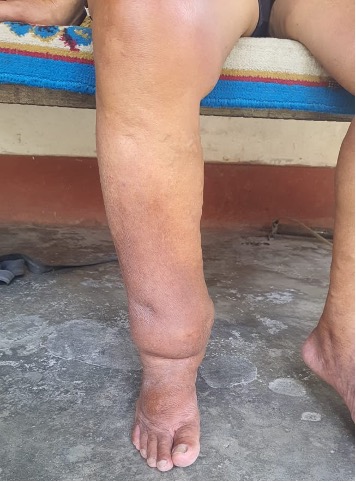Lymphedema, a chronic and debilitating condition, is one of the most visible and painful manifestations of lymphatic filariasis (LF), commonly called elephantiasis. LF is a parasitic infection transmitted by mosquitoes, which damages the lymphatic system, leading to severe swelling in the limbs, breasts, or genitalia. The progressive accumulation of lymph fluid causes lymphedema, resulting in discomfort, immobility, and social stigma for those affected.
The condition develops over time, often years after the initial infection, as the lymphatic vessels become blocked or damaged. Early signs include recurrent episodes of inflammation or skin infections, and without proper care, the swelling becomes permanent, leading to significant physical deformity. The emotional and psychological impact on individuals can be profound, as they face not only physical pain but also social exclusion due to visible disfigurement. Managing lymphedema caused by LF involves a combination of hygiene practices, exercise, and compression garments to reduce swelling and prevent infections. While there is no cure for the condition, early intervention can slow its progression and improve quality of life. Global efforts to eliminate LF are ongoing, with mass drug administration programs aiming to prevent new infections and halt the spread of the disease. However, for the millions already suffering from lymphedema, access to proper care and treatment remains essential.
